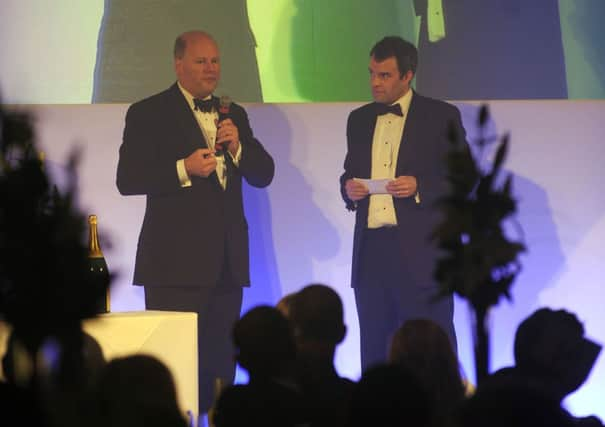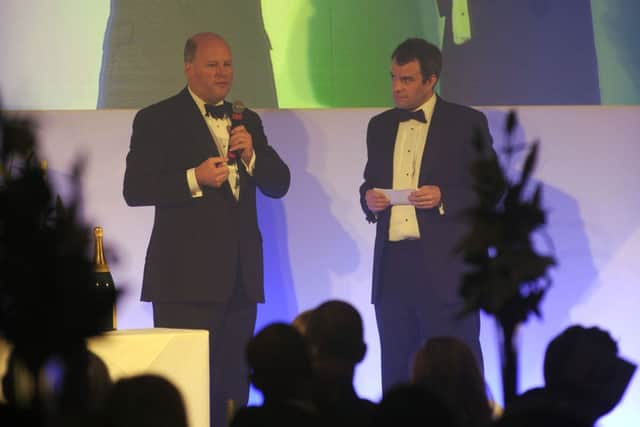Value of RBS will fall if left in public hands, says former boss


Chancellor George Osborne announced yesterday that a sale of the 82 per cent stake is unlikely before the general election in 2015.
But Mr Hester, who departed the bank last month, told the Yorkshire Post: “RBS is strong enough to be privatised now.
Advertisement
Hide AdAdvertisement
Hide Ad“The state should average its value. The later share sales will be higher than nearer ones, but RBS will be worth less if public ownership lasts for much longer.


“It’s in everyone’s interests. RBS will serve the economy and will pay back taxpayers better the sooner an amicable split from government can take place.”
Mr Hester said government and business “should hold hands at a distance”.
He added: “Governments are not good owners of business in the long term and I think it has been everyone’s intention that the banks, that were temporarily nationalised should be privatised as soon as possible.”
Advertisement
Hide AdAdvertisement
Hide AdMr Hester made the comments on Thursday night at the Yorkshire Post Excellence in Business Awards, where he was honoured for his work leading the rescue and recovery of RBS.
He carried out one of the largest and most complex restructurings ever seen, which included a dramatic reduction of the bank’s £1.4 trillion balance sheet and bolstering of its capital position.
RBS was the subject of three reports published yesterday, one revealing plans for the rapid wind-down of toxic loans while slashing costs, another one detailing its performance between July and September and a third criticising the bank’s lending to small businesses.
A Government-commissioned report stopped short of ordering a formal break-up of the bank, which had been advocated by former Bank of England Governor Mervyn King, and by Nigel Lawson, a former Chancellor and a member of the influential Parliamentary Commission on Banking Standards.
Advertisement
Hide AdAdvertisement
Hide AdThey had argued that it would leave the bank better placed to lend and support the economy, but opponents said it would be too expensive and complicated.
Mr Osborne said while ring-fencing problem assets should make it easier to “get our money back”, a sale of RBS is “still some way off”.
RBS reported a £634m third quarter loss, hit by one-off items and an additional charge of £250m to cover mis-selling of payment protection insurance. This compares to a £1.37bn loss a year earlier.
Mr Hester, who grew up in North Yorkshire, was drafted in to take on the role as RBS stood on the brink of collapse in 2008.
Advertisement
Hide AdAdvertisement
Hide AdHe told the Yorkshire Post: “RBS could have blown up lots of economies if we hadn’t done what we did after the crisis.
“But that’s only what got in the newspapers.
“At the same time as doing that we had 30m customers to serve every day whilst our own business was in chaos.
“There will be some people who think we didn’t do as well as they would wish and I agree, we would have liked to have done it better, but nevertheless we serve 30m customers and rebuilt an incredibly strong business around the world at the same time.
“We had a business the UK taxpayer had put £50bn in that on the day that I announced the first set of results when I came in was worth zero.
Advertisement
Hide AdAdvertisement
Hide Ad“Today, the market capitalisation of RBS is worth £40bn. We are not quite back to the £50bn but that’s £40bn more than the zero it was and we will get back to the £50bn.
“RBS symbolised some bad things. There was just an incredible external human job in terms of absorbing hopes, fears and anger of a population and an internal job of 175,000 of our own staff who felt under siege but who had to get up every day and serve our 30m.
“The difficult thing... was combining those at a time when the public mood didn’t know whether they wanted us to succeed or wanted to biff us on the nose as a representative of banking which hadn’t gone well. That’s what we tried to do. I think I did a reasonable job.”
Asked about his experience working with Mr Osborne and predecessor Alistair Darling, Mr Hester said: “The interesting thing through the last five difficult years when you’re in the centre of everyone’s anger and difficulty and you come close to politics... you see very talented, clever individuals who are both... trying to make the country better.”
He added: “I’m happy with the time I spent close to politics although I’d never want to be one.”
Watch the video at www.yorkshirepost.co.uk